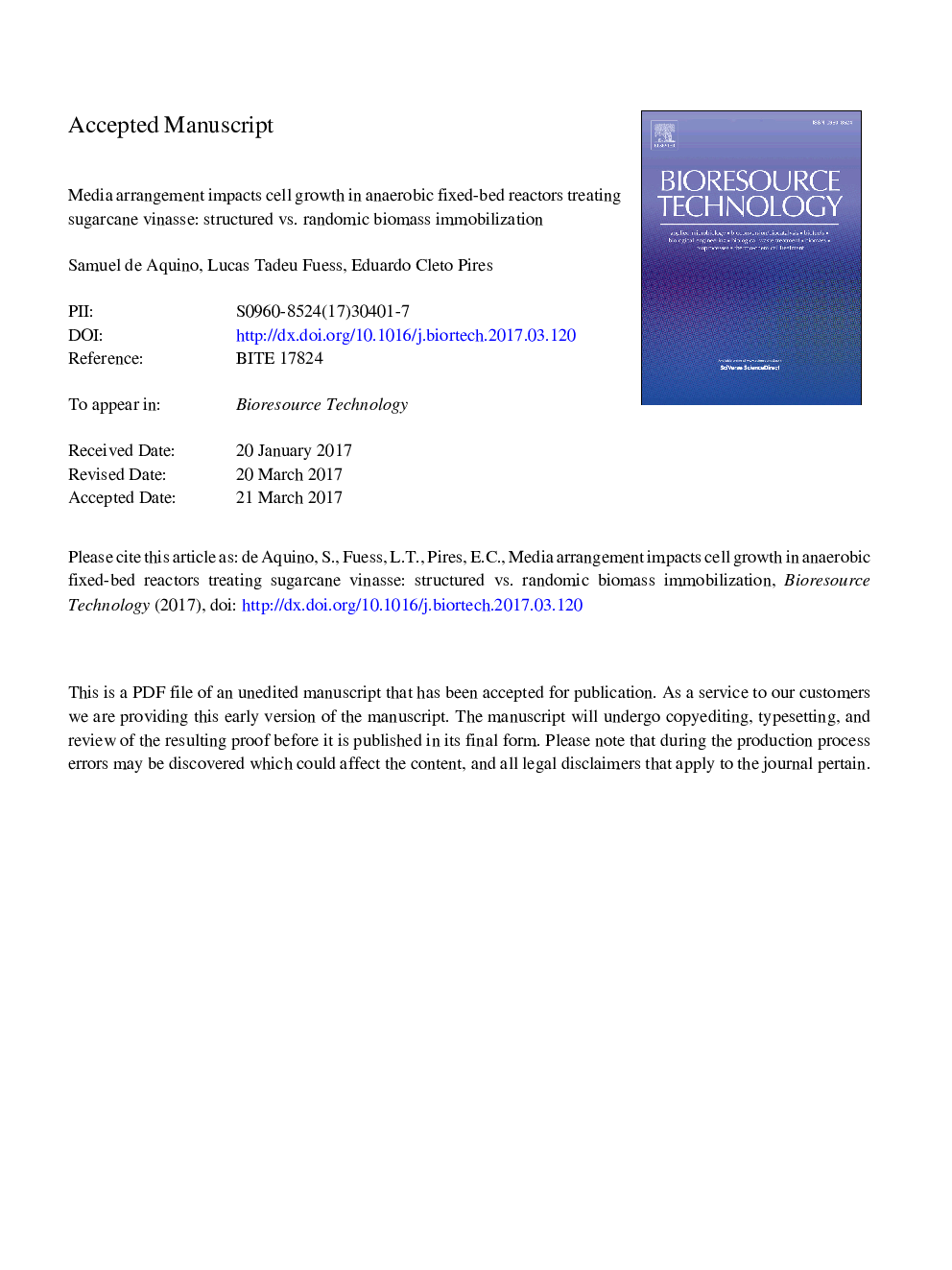| Article ID | Journal | Published Year | Pages | File Type |
|---|---|---|---|---|
| 4997361 | Bioresource Technology | 2017 | 36 Pages |
Abstract
This study reports on the application of an innovative structured-bed reactor (FVR) as an alternative to conventional packed-bed reactors (PBRs) to treat high-strength solid-rich wastewaters. Using the FVR prevents solids from accumulating within the fixed-bed, while maintaining the advantages of the biomass immobilization. The long-term operation (330 days) of a FVR and a PBR applied to sugarcane vinasse under increasing organic loads (2.4-18.0 kg COD mâ3 dayâ1) was assessed, focusing on the impacts of the different media arrangements over the production and retention of biomass. Much higher organic matter degradation rates, as well as long-term operational stability and high conversion efficiencies (>80%) confirmed that the FVR performed better than the PBR. Despite the equivalent operating conditions, the biomass growth yield was different in both reactors, i.e., 0.095 gVSS gâ1COD (FVR) and 0.066 gVSS gâ1COD (PBR), indicating a clear control of the media arrangement over the biomass production in fixed-bed reactors.
Keywords
Related Topics
Physical Sciences and Engineering
Chemical Engineering
Process Chemistry and Technology
Authors
Samuel de Aquino, Lucas Tadeu Fuess, Eduardo Cleto Pires,
